Semenov&Pevzner Law Firm has prepared a large-scale report on the largest legal conflicts in the gaming industry over the past six months.
The review was prepared by Alexey Pereverzev, Junior Associate of Semenov&Pevzner, and Ekaterina Smirnova, Managing Partner of the St. Petersburg office of Semenov&Pevzner.

Alexey Pereverzev and Ekaterina Smirnova
The material covers both court proceedings and other significant cases from the legal point of view from the end of 2019 to the present. The work is divided into six parts:
- copyright;
- trademarks;
- image of a person;
- personal data;
- gambling mechanics;
- other cases.
1. Copyright
In the modern world, a video game is a complex multimedia product that includes various intellectual property objects, in particular: software, music, graphical interface, characters and script. All these objects themselves are independent results of the creative activity of individuals. It is not surprising that sometimes we encounter claims from authors and copyright holders who claim that an object belonging to them was illegally used in the game. Often, the game itself or its individual components are used without the permission of the copyright holder, for example, in violation of the terms of the user agreement.
In December 2019, Take-Two Interactive, the publisher of the popular Red Dead Redemption series of games, sued developer Jonathan Wyckoff in the Southern District of New York. The company demanded to prohibit Jonathan from performing any actions aimed at illegal modification of Take-Two games. In the lawsuit, Take-Two Interactive stated that Jonathan created and planned to publicly release two projects that were versions of Red Dead Redemption games modified without the consent of the copyright holder.
The first project was called the RDRII Project and involved adding a map from the first part of the game to the PC version of the RDR II game, which previously worked only on the Xbox 360 and PS3 platforms. The company did not release a PC version of the first part of Red Dead Redemption.
The second project, called Red Dead Redemption Damned Enhancement Project , involved improving graphics and adding additional features to the second part of Red Dead Redemption through the use of modified files from the first part of the game and from the GTA V video game .
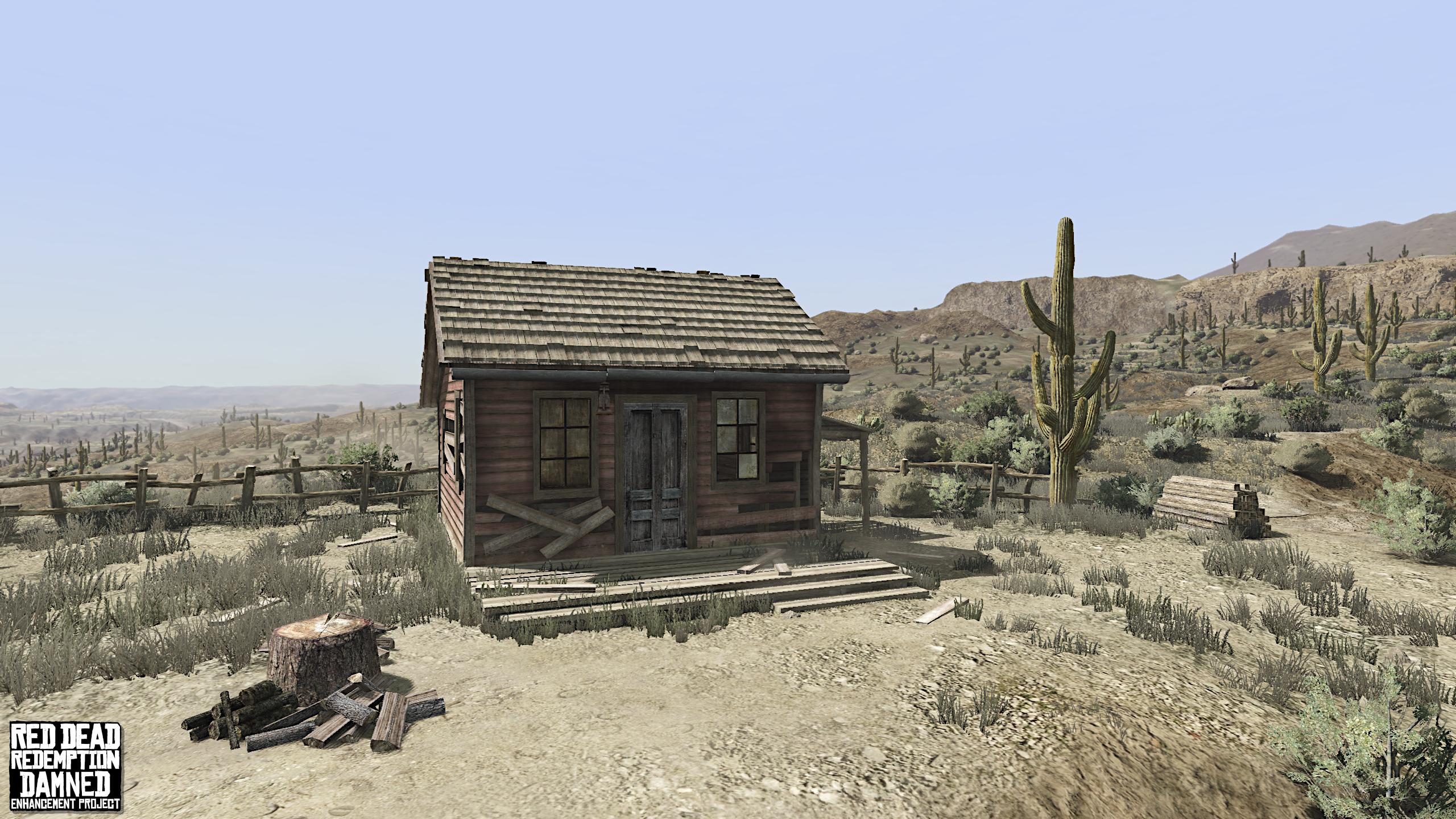
Red Dead Redemption Damned Enhancement Project
According to the case file, Jonathan claims that his actions are permissible and his modifications cannot be used in the multiplayer version of the games, since he “disabled” the corresponding feature. However, according to the plaintiff, users can bypass the restrictions set by Jonathan and use modifications in multi-user versions.
In March 2020, Jonathan sent a response to Take-Two’s lawsuit, in which he indicated that he acted in accordance with the policy published by the plaintiff regarding “single-user modifications for personal computers.” Jonathan disagreed with the fact that users have the ability to easily circumvent the restrictions they have set. He also indicated that he could not be held responsible for the alleged modifications that could subsequently be made by the users of the product.
In response to this statement, Take-Two Interactive stressed that in order to comply with the policy specified by Jonathan, any modification must be non-commercial. While according to the plaintiff, Jonathan collected donations, which he used to create “programs that violate the law.” At the moment, the case is being considered. An initial pre-trial meeting was scheduled for April 17, 2020, which, however, was canceled.
b) Nintendo against the RomUniverse website in a dispute over infringement of exclusive rights
In September 2019, Nintendo filed a lawsuit in the Los Angeles Central District Court against the owner of the RomUniverse portal, which gives users the opportunity to download content, including video games.
Nintendo claimed that the site is one of the most visited and infamous sites for downloading pirated versions of Nintendo video games. The company is seeking to close the portal, and also demands damages in the amount of $ 150,000 for each counterfeit copy of the Nintendo game and up to $ 2 million for each violation of Nintendo’s trademark rights.
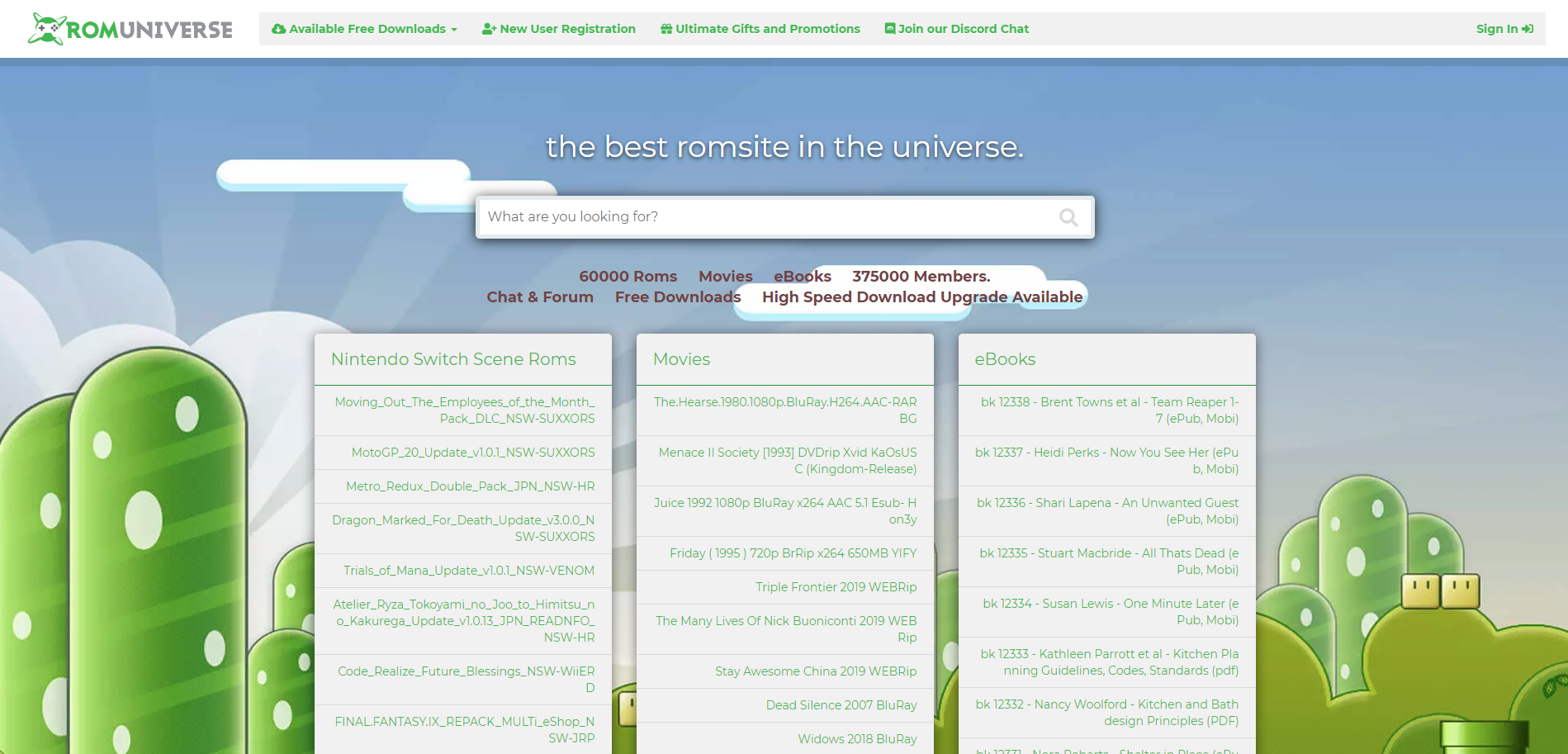
RomUniverse
Site administrator Matthew Storman, a resident of Los Angeles, disagreed with the accusations made by Nintendo and filed a motion to dismiss the lawsuit. However, the court did not satisfy him and decided to prepare a response on the merits.
In his response, Matthew stated that he was unaware of any illegal content that was uploaded to the site, he was not responsible for downloading material by third parties and did not profit from the distribution of games. On March 6, 2020, Nintendo sent a response to Matthew’s statement, in which it disagreed with the arguments presented by him. The case continues.
In December 2018, Nintendo filed a lawsuit in the Central District of California against a California resident, later identified as Sergio Mojarro Moreno. Presumably Sergio sold a batch of Nintendo Switch mod devices produced by the hacker group Team-Xecuter. These devices allowed running counterfeit copies of games on the console, memory cards with pirated copies of Nintendo games, as well as a modified version of the NES Classic.
In September 2019, it was reported that the parties agreed to settle the dispute by concluding a settlement agreement. Subsequently, the court ruled that the defendant and any person acting jointly with him should not circumvent Nintendo’s technical protection measures, as well as provide services and/or offer technologies, devices or components that will allow this. In addition, it is prohibited to sell, rent, otherwise offer or distribute counterfeit copies of Nintendo games, violate the company’s exclusive trademark rights, and use the Internet “or any digital network” to provide third parties with services that may infringe the copyright of Nintendo games.
d) Nintendo and the termination of a successful Kickstarter campaign
In March 2020, representatives of Nintendo stated that a fundraiser using characters and images from the game Animal Crossing was organized on the Kickstarter platform without obtaining the necessary permission. The founder of the New Adventures Passport Travel Holder project intended to invite users to invest in a project to produce RFID-protected passport covers and luggage tags. At the same time, images and characters of the Animal Crossing series were really used on all products.

New Adventures Passport Travel Holder
Nintendo, based on the provisions of the Digital Millennium Copyright Act, sent a letter and a notice of copyright infringement to Kickstarter, after which the controversial campaign was terminated.
e) Rockstar vs the Epsilon cheat modification development team for GTA V
In the video game industry, there is currently a trend according to which video game publishers are trying to use copyright protection tools to combat the creators of software that provides users with benefits not provided for by developers (“cheats”).
At the same time, the question of whether the development and use of “cheats” violates the exclusive right of the copyright holder to the original game and, in fact, whether these actions are in the field of copyright protection does not always have an unambiguous answer.
Rockstar, a major developer and publisher of the popular GTA series of games, and its parent company Take-Two Interactive filed a lawsuit in the UK Intellectual Property and Entrepreneurship Court against several persons associated with the cheat modification of Epsilon for the GTA V video game. Epsilon was a so-called mod menu, which gave players significant advantages during games.
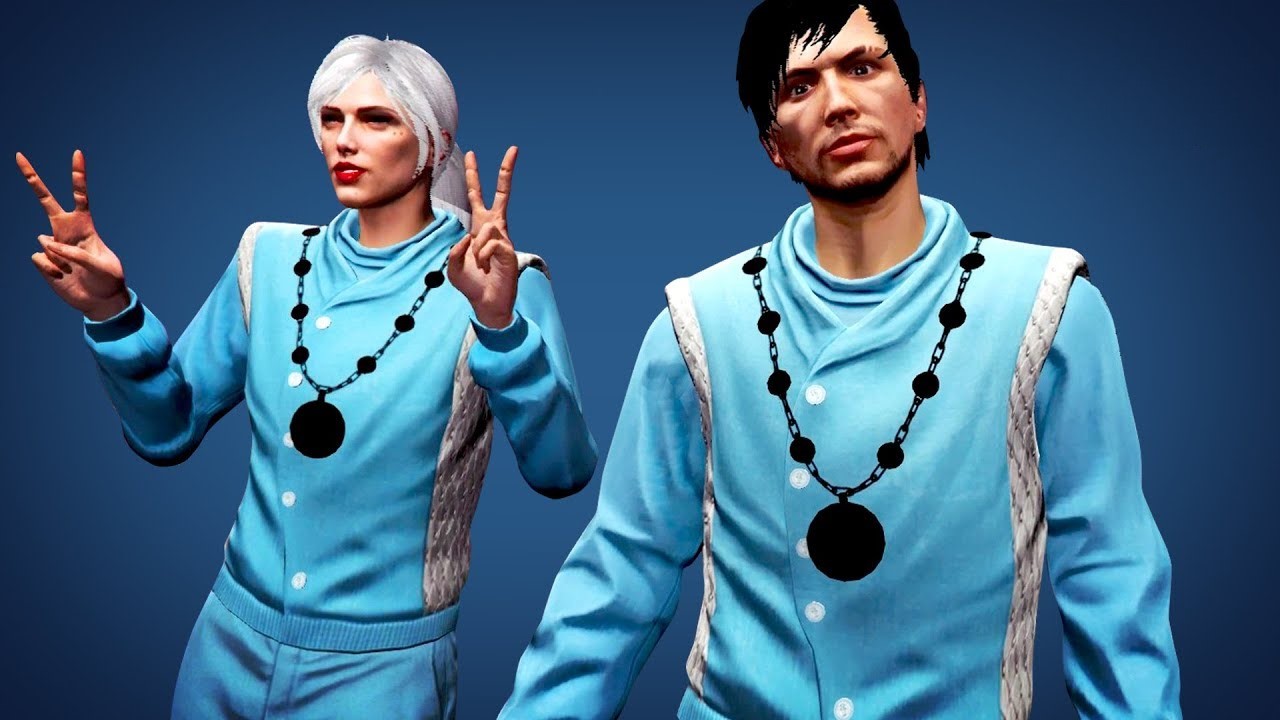
Funny fact: in GTA Online itself two years ago there was a secret outfit that was called Epsilon
Rockstar and Take-Two Interactive achieved the shutdown of Epsilon. In addition, thanks to the investigation, a group of five people who were behind the activities of the cheat was identified. All participants were accused of copyright infringement by creating and distributing software that made it possible to make changes to the functionality of the game provided by the developers.
Three of the five members of the group pleaded guilty and subsequently the dispute was settled against them in a pre-trial order. Two others declared their innocence, referring to the fact that they added a disclaimer to the software they developed with a disclaimer, as well as the fact that many of the materials used to create cheats were obtained by them from third-party sources, including from a popular and well-known public site for cheats that offers the source code GTA V.
In a decision dated January 29, 2020, the court sided with the plaintiff and recognized the fact that the defendants violated the exclusive rights to the video game.
f) Solid Oak Sketches Tattoo Parlor and the rights to use LeBron James tattoos
In February 2016, the tattoo salon Solid Oak Sketches filed a lawsuit over the illegal use of tattoos of basketball player LeBron James (LeBron Raymone James). The salon’s lawyers said that 2K Sports, which is the developer of the NBA 2K simulator game, had to get permission to use tattoos in its game. The lawsuit was filed on February 2, 2016 in the United States District Court for the Southern District of New York. Subsequently, the parties repeatedly made new statements and now, in 2020, the case was completed.
The company 2K Sports insisted on the legal principle de minimis, according to which the appearance of individual photos in the scenes of the film is not a violation of the photographer’s copyright, if these photos are insignificant for the overall plot, for example, just hanging on the wall against the background of the characters. The company’s lawyers also insisted that tattoos rarely appeared in the frame and were used to identify the athlete as the hero of the game.
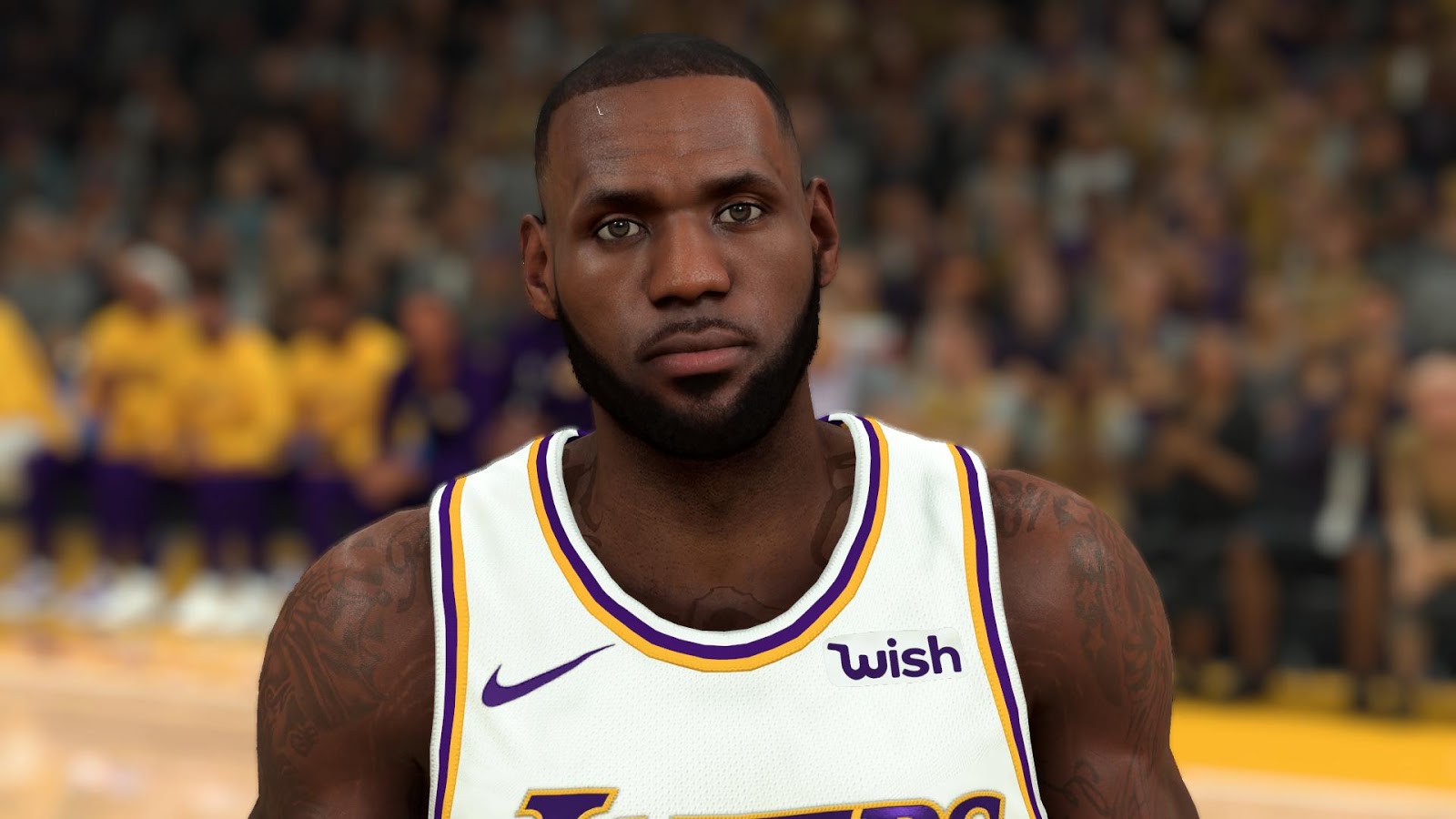
LeBron James in NBA 2K
The basketball player himself has also repeatedly publicly expressed support for the developers: “Tattoos are part of my body and my image. I think I have every right to show tattoos, including on commercial images.”
In March 2020, the Federal Court of New York sided with the athlete and the developers and agreed that the use of tattoos was minimal and difficult to identify during the game, and the implied license for their use was obtained. Now the company has the right to file a counterclaim, which will address the issue of the use of tattoos in video games on the rights of “fair use” – the use of copyrighted materials subject to certain conditions.
f) Epic Games and dancing in the game Fortnite
At the end of 2019, Epic Games filed another lawsuit against Matt Geiler and his consulting company Sick Picnic Media, stating that the actions in their game Fortnite do not infringe the copyright of the “character” Dancing Pumpkin Man. The lawsuit is a response to a previously filed demand to stop using the Pump It Up emotion in the Fortnite game.
According to Matt Giller, Epic Games violates the rights to dance and the image from the 2006 video Dancing Pumpkin Man, and that it is on him that the image of the pumpkin-headed character and the Halloween emotion in Fortnite is built.
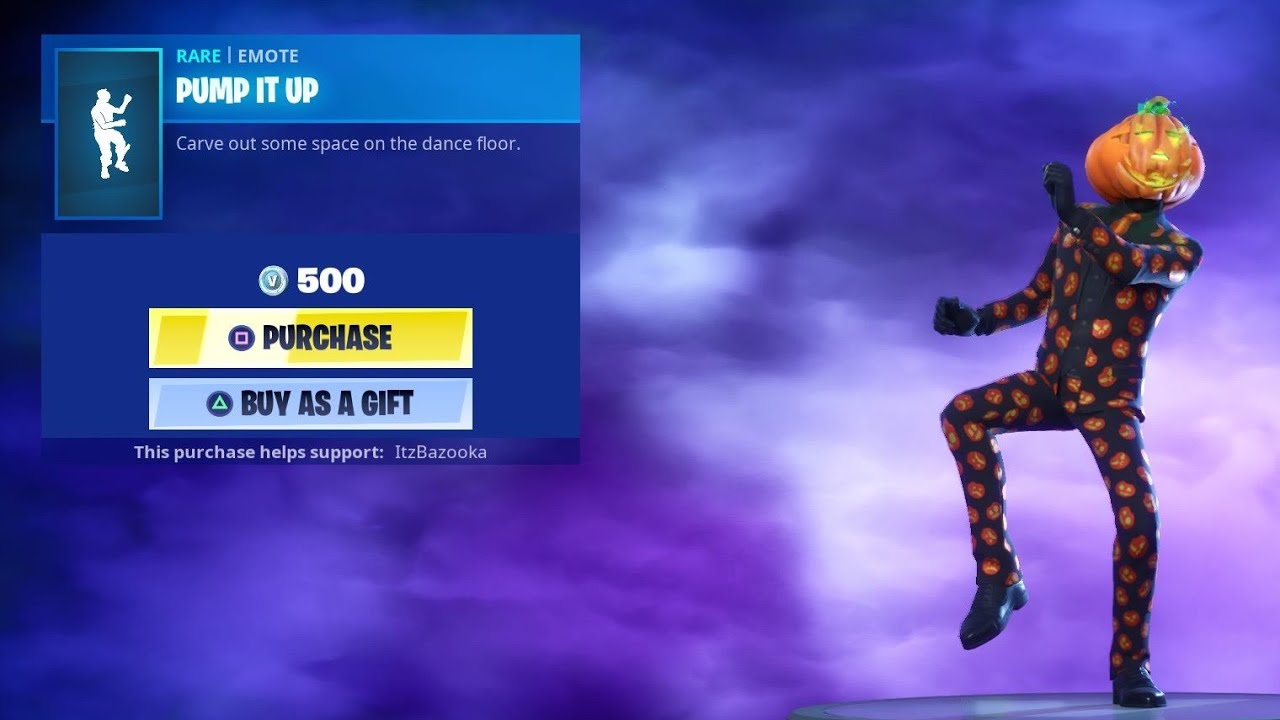
Dancing Pumpkin Man in Fortnite
In turn, Epic Games insists that the game uses similar, not copying movements and image, and, moreover, the defendants granted Epic Games the right to use the “character”, the video and all its constituent elements on the basis of a license agreement that was signed on August 23, 2019. So, in particular, the plaintiff points out that under the terms of the license he was granted the right to use choreographic elements from the Giler dance, and the full subject of the agreement was the right to use an audiovisual work in the Fortnite game in the form as it is depicted on the video with the Giler dance from 2006. Epic Games also noted that the pumpkin—headed man is a common image in popular culture, and therefore the rights to it cannot belong to Giler.
In early January 2020, Epic Games dropped the lawsuit.
g) A three-year dispute between Crytek and Cloud Imperium Games
The dispute between Crytek studios and Cloud Imperium Games began in 2017. Crytek claimed that Cloud Imperium Games improperly used the CryEngine engine when creating the Squadron 42 single-player campaign. At that time, they had the right to use the engine only for the Star Citizen video game.
In January 2020, Crytek agreed to withdraw the application, as the release of Squadron 42 never took place. However, the defendant, Cloud Impreium Games, was not satisfied that the plaintiff did not plan to pay court costs. In addition, Cloud Imperium Games stated that Squadron 42 is being created on the Lumberyard engine from Amazon. So, representatives of Cloud Impreium Games demanded that the withdrawal of the claim be accompanied by payment of compensation in the amount of $ 500 thousand.
On February 20, 2020, it became known that the parties had settled the dispute. The terms of the agreement were not disclosed.
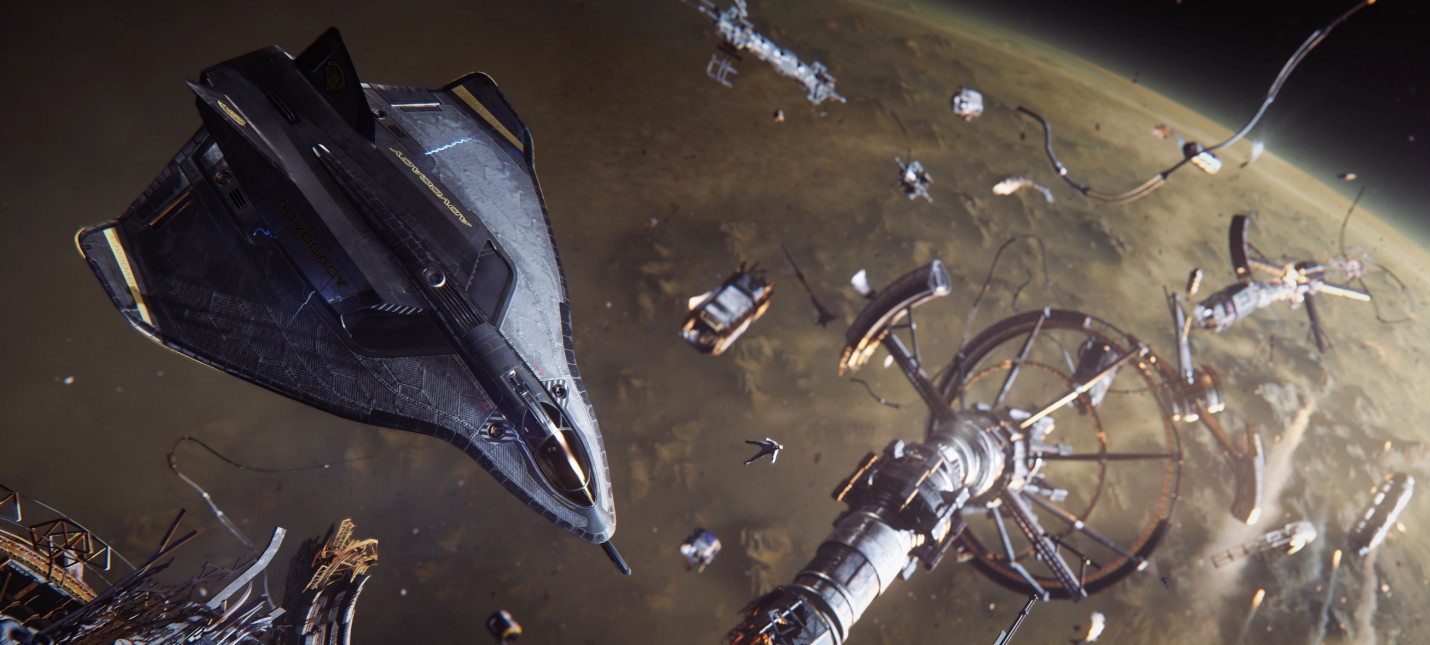
Squadron 42
h) Rambler v. Igor Sysoev (Nginx case)
On December 12, 2019, Rambler Group announced its exclusive rights to Nginx software. According to representatives of Rambler, this software was developed by former employees of the company using internal resources. This statement was preceded by the initiation of a criminal case on the appeal of Lynwood Investments, to which the Rambler Group ceded the rights to file claims.
According to Igor Sysoev, who worked at Rambler as a system administrator, software development was not part of his job responsibilities. He worked on his product exclusively in his spare time. In Rambler, the Nginx system began to be used already when the main functionality was ready, and by that time Rambler was far from the first Nginx user.
This case was widely publicized because the actions of the Rambler Group received an extremely negative assessment and were perceived as an attempt to appropriate the rights to a popular and commercially successful development after the controversial web service was acquired by F5 Networks for $ 670 million. In addition, an important point was that the right to use Nginx was initially granted by Igor Sysoev on the basis of a free BSD license, in connection with which Rambler’s actions were also regarded as an encroachment on the free distribution of open source technologies.
As a result, Rambler Group asked to terminate the criminal case and announced that it plans to transfer the dispute with Nginx to the civil legal sphere. As of February 2020 (there is no more up-to-date information in open sources), the investigation was not terminated, since the withdrawal of the victim’s application for this category of cases is not enough to terminate, which was noted by experts back in December 2019.
In April 2020, it became known that the Prosecutor General’s Office raised the issue of termination of the case before the investigation. Nevertheless, the investigation has not yet been terminated and no decision has been made.
i) Blizzard and copyrights to maps in the Warcraft III Editor: Reforged
In January 2020, Blizzard made changes to the “Acceptable Use of User Games Policy” according to which all rights to the cards that players create in the editors automatically belong to the company. In accordance with the new rules, all players who create maps in the editor automatically assign the rights to them to the developers, and the company will not pay compensation to the creator of the map, even if it subsequently decides to use it in the game. In addition, Blizzard has the right to remove any card without warning the author.
There are suggestions that in this way Blizzard is trying to protect itself from repeating the scenario with Defense of the Ancients, or DotA, which was originally created as a mod card for Warcraft III. Later, Valve acquired the copyright to DotA from the developers of the modified map and later created the popular Dota 2 video game based on it.
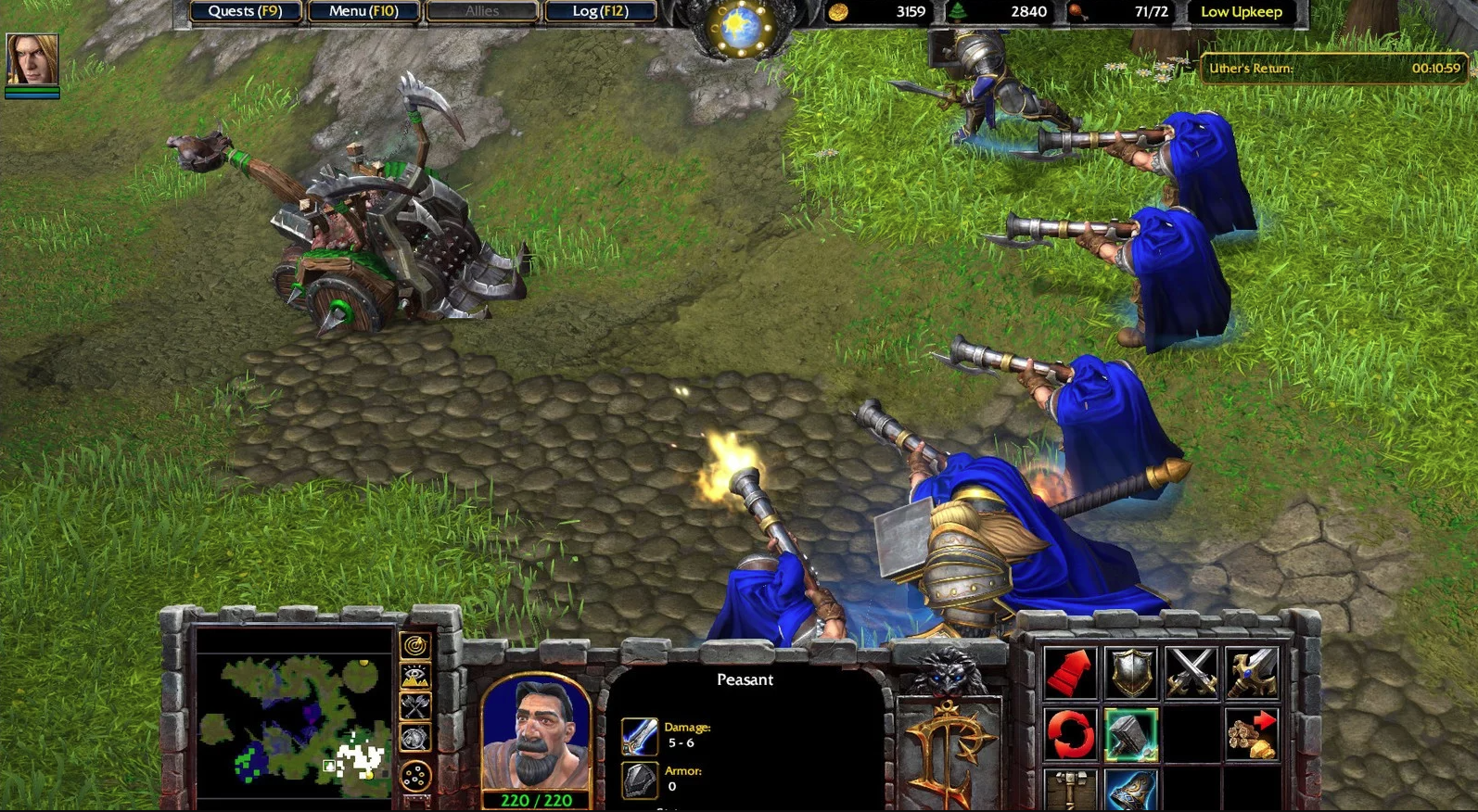
Warcraft III: Reforged
In December 2019, a statement was published by Wargaming, which claimed that the defendants had posted counterfeit copies of the engine’s source code on GitHub. According to the statement, they did it at a time when they worked in the Game Stream studio, the Minsk division of Wargaming. Violators “created forks from these copies to personal accounts in GitHub” and since 2016 “as a result of offenses” added links to the BSD3 open license to the forks.
According to information from open sources, Wargaming has filed civil lawsuits against five former employees and collectively demands compensation from them in the amount of $ 1.69 million. A court hearing in this case is scheduled for April 2020.
2. Trademarks
A trademark is a means of individualizing a product. In the case of video games, it can be either the name of the game, or elements of the game interface, from the image of the characters to the music track. If the copyright holder registers the name and elements of the game as trademarks, this allows him to effectively commercialize their use, and provides additional protection against their illegal use.
k) Wargaming against former employees in the case of the use of the word Blitz
At the end of February 2020, Wargaming issued a press release in which it announced that it had legally banned the company Blitz Team from using the word Blitz in relation to video games in the European Union.
The founders of the Blitz Team are former Wargaming employees who participated in the creation of the game World of Tanks Blitz. The Blitz Team used the word Blitz both in the name of the studio and the Blitz Engine, on which their debut game, the mobile shooter Battle Prime, was developed.
Representatives of Wargaming explained their decision by saying that the company seeks to prevent unfair use of intellectual property, as well as to avoid any associations with the game World of Tanks Blitz. Wargaming added that the court order has entered into force and is subject to immediate execution. In March 2020, Wargaming also filed a lawsuit in the Los Angeles Federal District Court, citing unfair competition and misuse of trademarks by Blitz Team. In addition, the companies are conducting proceedings regarding the rights to the Battle Prime trademark.
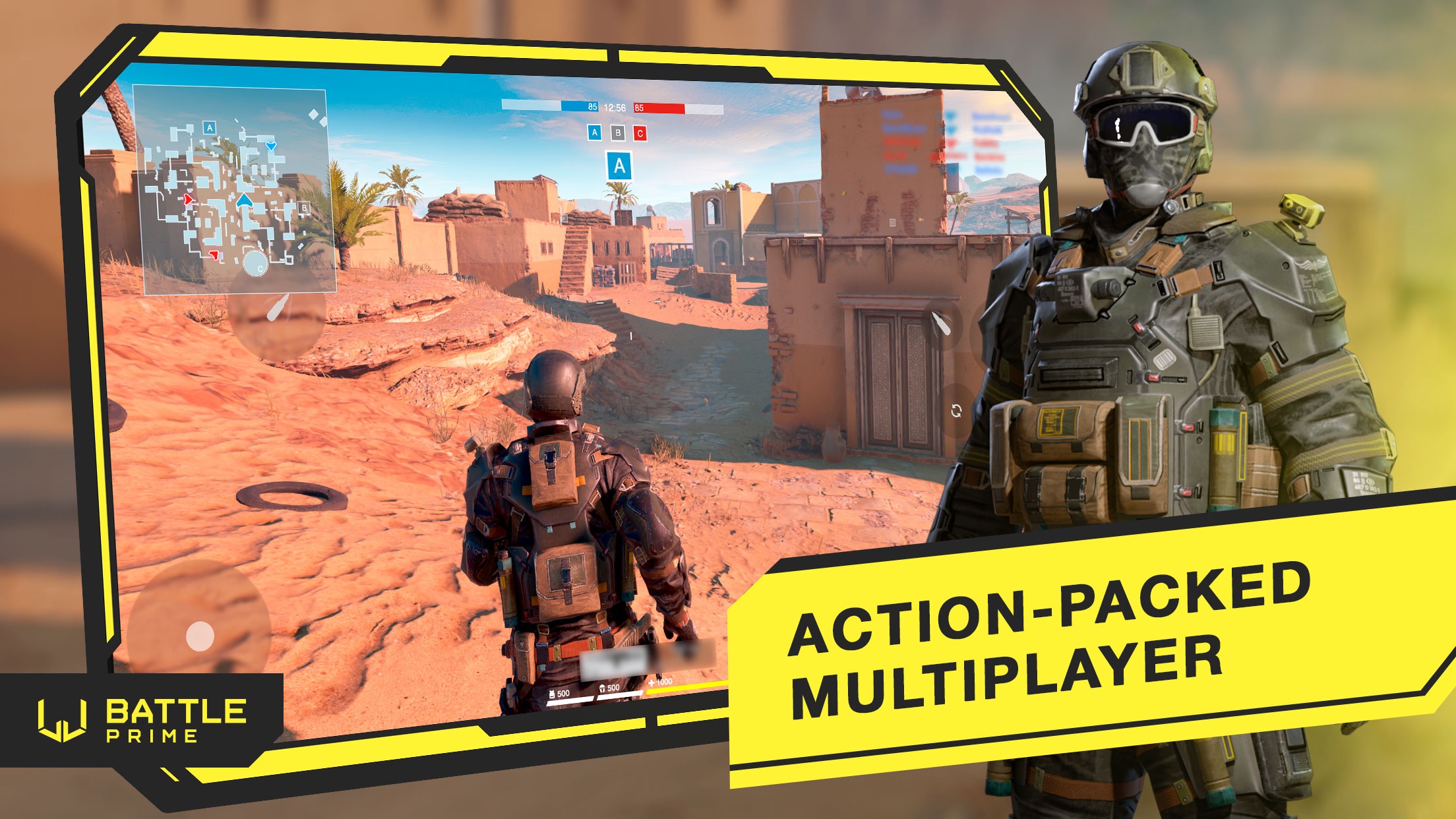
Battle Prime
3. Human images
A special object of legal protection is the image of the person depicted in the photograph itself, and not the photograph as a whole as an object of copyright. To obtain the right to use the image of a real person in the game, his consent is required. However, as practice shows, developers do not always remember this rule.
l) Selena Gomez vs. the developers of the mobile video game Clothes Forever
In April 2020, Selena Gomez filed a lawsuit against LoveCrunch, the developers of the mobile video game Clothes Forever. In her statement, the singer accused the developers of stealing and profiting from her image and brand, claiming that the game used an image similar to her photo on the cover of Flare magazine. Selena claims that her reputation has been called into question due to her association with the video game. The singer demands compensation for damages and payment of profits received by the developer as a result of using her image, as well as the termination of the use of the character in the game.

Selena Gomez and Art from Clothes Forever
4. Personal data
The audience of games can reach hundreds of millions of people. Therefore, companies began to pay closer attention to the protection of personal data of players. Unfortunately, companies do not always manage to ensure the safety of data. This inevitably involves reputational, and therefore potentially financial losses.
The issues of personal data disclosure also arise for developers and publishers, in whose interests it is to avoid a negative impact on the functionality of a video game by unidentified persons.
m) Claims against the publisher Zynga in connection with the data leak
In early March 2020, it became known that Amy Gitre and a minor player, whose interests are represented by his father Nasim Chaudhri, filed a lawsuit in the district court against Zynga. They claimed that in September 201929, as a result of a data leak of users of the video games Words With Friends and Draw Something, logins, addresses, passwords and other information of more than 173 million players were publicly available. Amy and Nasim accuse Zynga of 14 counts, including criminal negligence, fraud, unjustified enrichment and violation of information security laws.
In April 2020, a similar lawsuit was filed by two more users, Joseph Martinez and Daniel Petro. According to the applicants, Zynga did not provide “reasonable protection” of data and did not provide timely notification of the violation, which is contrary to the consumer protection Law. The plaintiffs are demanding compensation for damages caused by Zynga’s actions, as well as payment of interest and compensation for legal costs.
h) The requirement for Reddit to disclose user information
In February 2020, Activision (Activision Publishing), the publisher of the Call of Duty series of games, sued the Northern District of California against Reddit with a demand to disclose information about a user who published a poster on the forum of the then-unannounced game Call of Duty: Warzone, the royal battle of Modern Warfare.
A forum reader under the nickname Assyrian2410 posted an image of the game’s announcement, commenting that he found the picture somewhere on the web. Soon he deleted the post himself, but the poster had already spread across the Internet.
Activision, in accordance with the provisions of the Digital Millennium Copyright Act, required Reddit to disclose all user data known to the portal, including name, residential address, email, phone number and IP address. On February 19, 2020, Activision’s claim was satisfied and the court sent a corresponding document to Reddit.
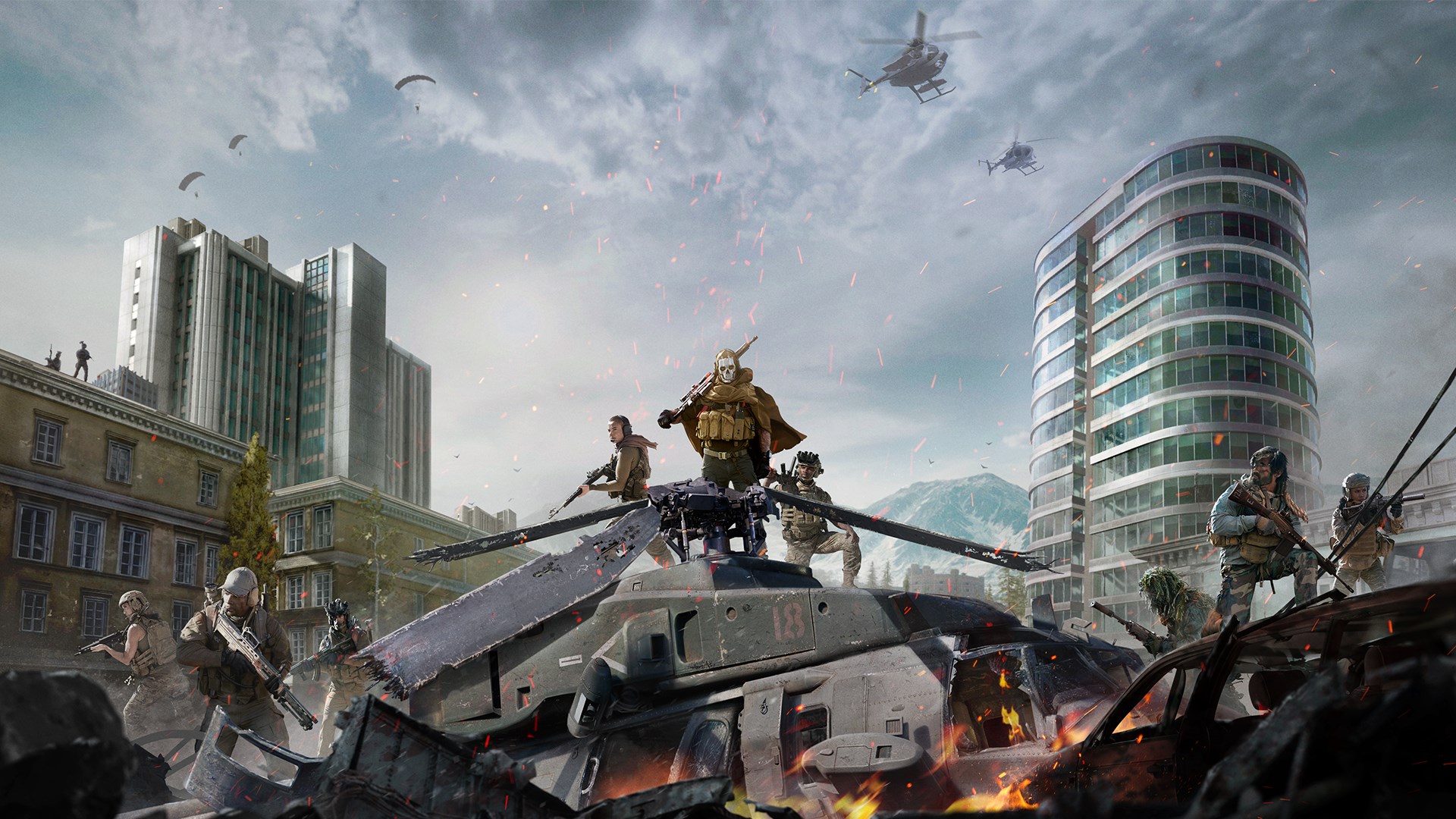
Call of Duty: Warzone
5. Gambling mechanics
Many games have mechanics based on the principle of randomness. On the one hand, this does not fully depend on the will or actions of the player, on the other hand, it implies the potential provision of a certain benefit to the player. Thus, there is a risk that such elements may be qualified as gambling. In this case, they fall under the relevant legal restrictions and prohibitions that apply in many countries of the world, including Russia.
All over the world, the use of “loot boxes”, “boxes” with a random object that can be used by the player, is becoming increasingly important. At the same time, the value of such an item is unknown at the time of purchase of the “box”.
a) The requirement to prohibit the sale of games with loot boxes to underage Australians
In March 2020, Australia proposed to ban the sale of all games containing loot boxes to persons under the age of 18. Representatives of the Commission on Social Policy and Legal Affairs of Australia have prepared a proposal to protect children from gambling and pornography. The document contains six recommendations, two of which relate to video games.
Firstly, it is recommended to find a way to “restrict access to loot boxes in computer and video games to persons under 18, including by labeling.” Secondly, it is recommended to introduce the practice of mandatory verification of the age of the player.
Thus, the Australian government is trying to ensure that teenagers do not have the opportunity to buy or get acquainted with gaming content that has loot boxes or any other gambling mechanics. One of the tools that will help in completely restricting access will be online age verification.
How exactly it will be implemented and whether it will be at all is unknown. At the moment, I recommend the project for development.

Overwatch Loot Box
6. Other cases
n) RageSquid and lifetime pirate flags
RageSquid, the developer studio of the Descenders action video game simulating downhill mountain bikes, came up with an interesting labeling of players who carried out illegal use of copies of the game, in particular the well-known SKIDROW and CODEX release communities.
The developer acknowledged that pirates have made a significant contribution to the distribution and popularization of the game, noting that approximately 60% of players use pirated copies. At the same time, the studio does not intend to make any claims to the pirates, because it believes that their activities attract additional attention to the game and have a positive effect on the developer’s income. So, the director of the studio Lex Decrow notes: “It would be really easy to shout, ‘Oh no, there are X number of people playing our game on pirated versions, we are being robbed for X* [the price of the game] dollars!’, but this is simply not true.”
On the contrary, the company “as a thank you” presented such players with a small flag that they will never be able to remove from their mountain bikes. At the same time, the company urges to consider this as a joke, and not as a punishment.
p) Online library in Minecraft
On the eve of the World Day against Cyber Censorship, which is celebrated on March 12, the international organization Reporters Without Borders has opened a special online library in the virtual Minecraft constructor. Inside it are the texts of journalists from all over the world, which at one time were blocked by the decision of the authorities of various states.
Access to the library can be obtained by downloading its building and logging into the game. As a result, the user will get to the island, where the blocked texts will be placed. Russia is represented by the materials of the website “Faces.<url>”, which was blocked in 2014 based on the decision of the Prosecutor General’s Office.
According to Reporters Without Borders, Minecraft is the most suitable platform for launching such projects, since you can launch Minecraft and get access to banned journalistic materials from almost anywhere in the world.
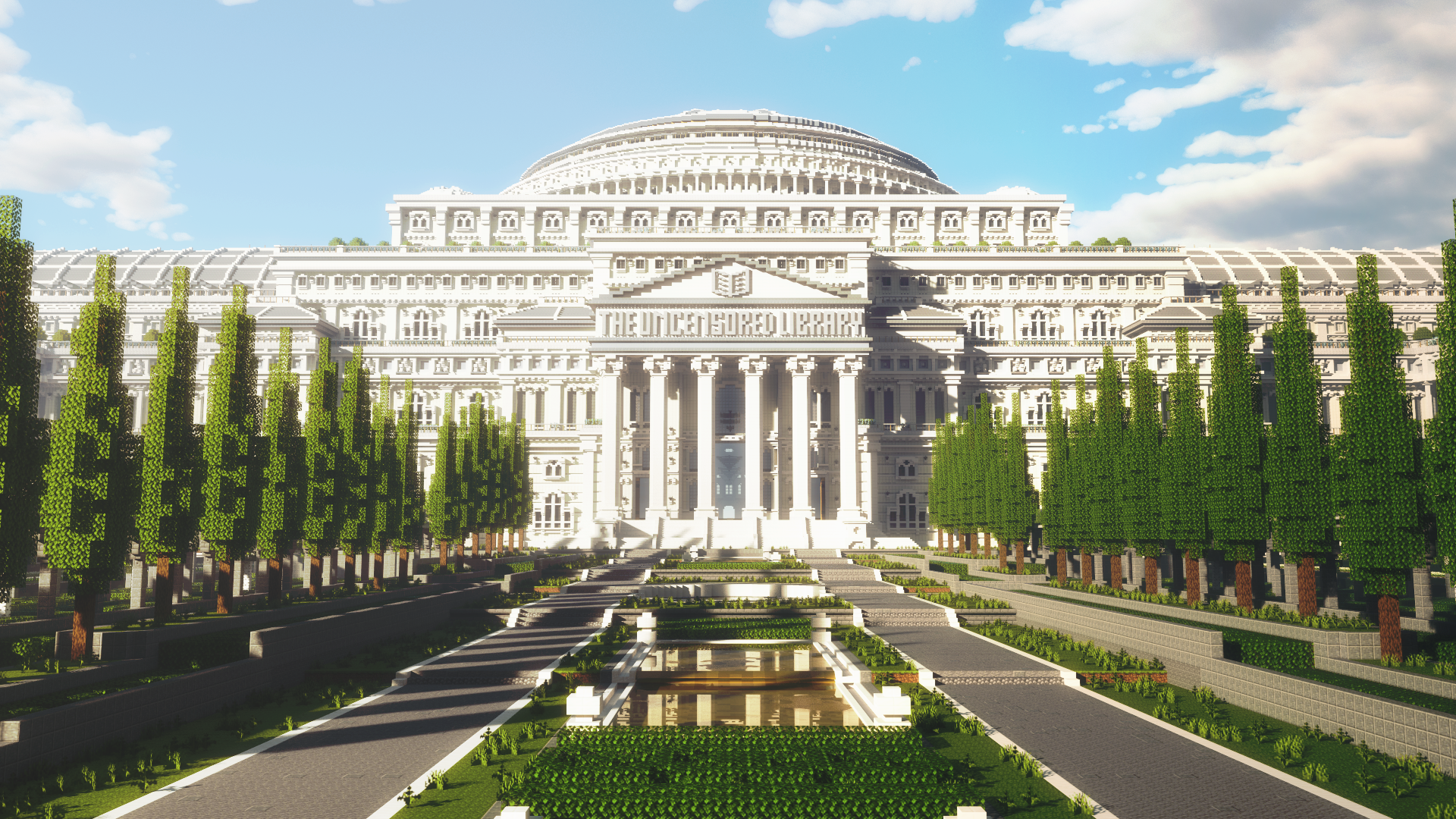
Library in Minecraft
c) Ubisoft against sites that organized DDoS attacks on Tom Clancy’s Rainbow Six Siege servers
In January 2020, Ubisoft, the publisher of the game Tom Clancy’s Rainbow Six Siege, filed a lawsuit in the court of the Central District of California against a number of persons responsible, according to the company, for organizing a DDoS attack on the game servers through the website SNG.ONE. As follows from the lawsuit, the defendants, who allegedly operate a website called SNG.ONE, sell subscriptions worth up to $299.85 for “lifetime” access to a server on which users access software to carry out DDoS attacks. A monthly subscription costs about $30.
Ubisoft claims that the owners of the site are well aware of the harm they cause to the publisher. The company demands to block the operation of sites through which DDoS attacks are organized, and to recover damages and legal costs from the defendants. At the moment, the case is being considered.
t) Rambler vs. Twitch and compensation for illegal match broadcasts
In August 2019, Rambler Group filed a claim with the Moscow City Court to block Twitch, a streaming platform.
Representatives of Rambler stated that the site carried out illegal broadcasting of matches of the English Premier League, the right to which belongs to the Rambler Group. Rambler planned to collect compensation from Twitch in the amount of 180 billion rubles ($2.9 billion).
During the court session in December 2019, it became known that the companies managed to settle the dispute and the plaintiff announced the withdrawal of the claim. Rambler’s press service also confirmed that the agreement signed with Twitch to settle the dispute over the illegal distribution of broadcasts of football matches of the English Premier League does not imply payment of any monetary compensation in favor of Rambler.
Is there any news? Share it with us, write to press@app2top.ru
